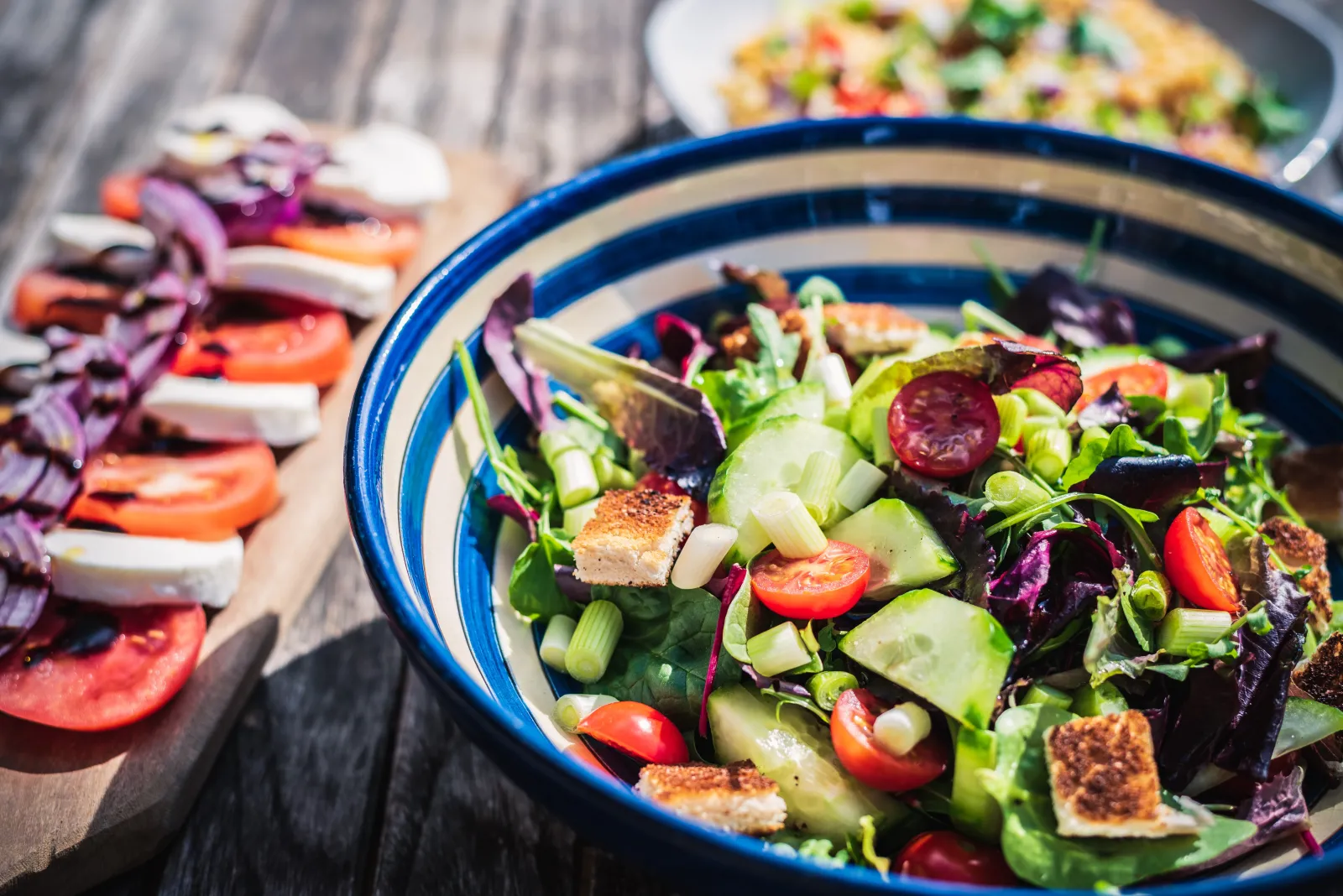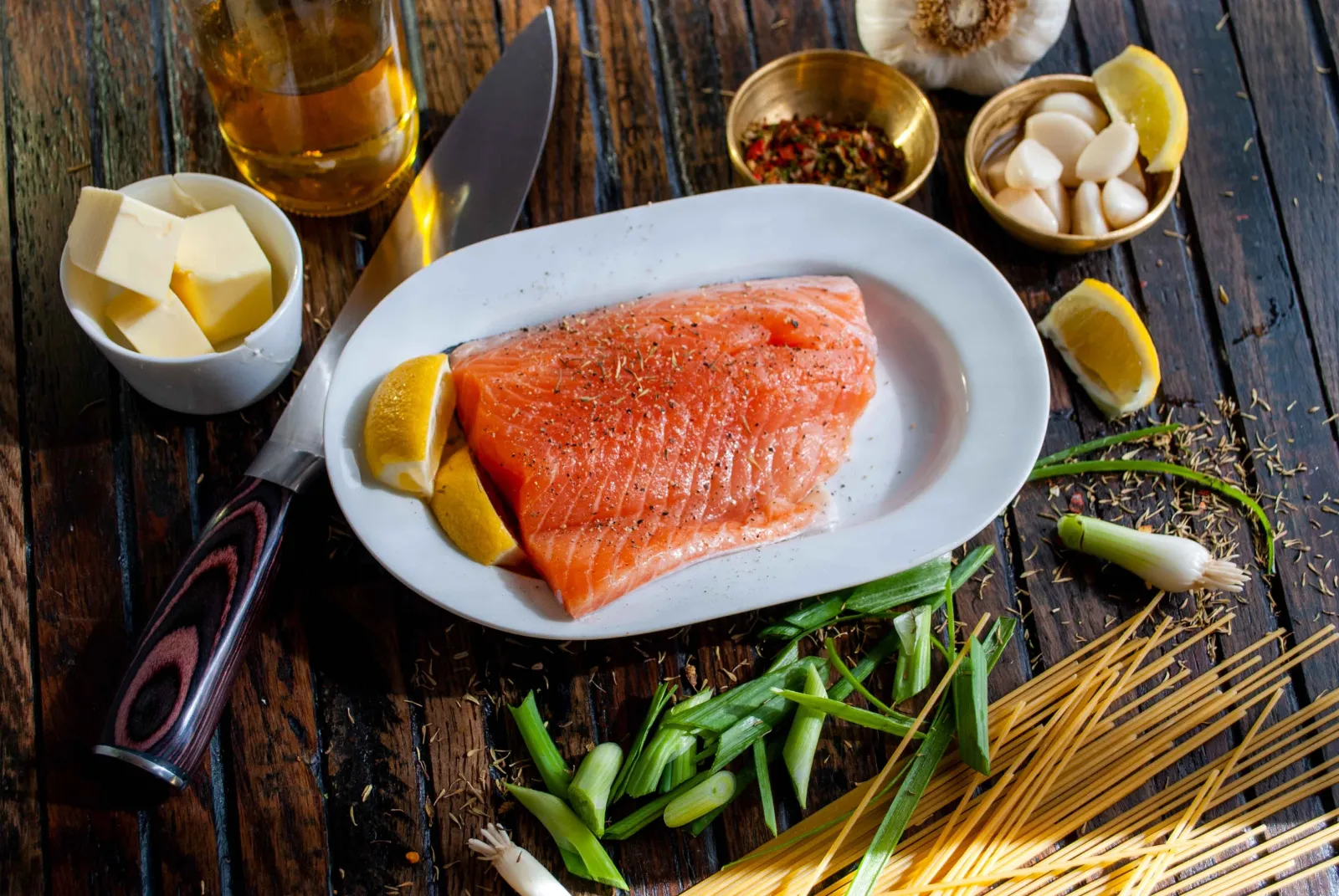The Mind Diet

Can certain foods or a healthy diet stave off cognitive decline? Is there such a thing as "brain food''?
Early research suggests that daily food choices can play a powerful role in preventing cognitive decline and dementia. These findings have led to the MIND diet, which suggests that what we eat can make a difference in the aging brain's ability to think and remember.
"The MIND diet has demonstrated an association between the effect of a healthy diet and delay in cognitive aging. Specifically, people who followed the MIND diet very closely reduced their risk for development of Alzheimer's disease by 53%, and even those who followed the diet moderately well were shown to have a 35% reduction in risk," said Jennifer Ventrelle, MS RDN CPT, a registered dietitian nutritionist, certified personal trainer, and the lead dietitian for the MIND Center for Brain Health at Rush University Medical Center.
Dr. Martha Clare Morris, along with Dr. Christy Tangney at Rush University Medical Center and Dr. Frank Sacks at Harvard School of Public Health, were the creators of the MIND diet. Ventrelle says, "Our research team at Rush and Harvard is conducting the first clinical trial to explore a causal relationship between the MIND diet and cognitive decline. The results of the trial are currently being analyzed and we should know more by the end of 2022."
ALL IN THE MIND DIET

The MIND diet is a combination of the Mediterranean diet which emphasizes fruits, vegetables, whole grains, legumes, fish, and unsaturated fats such as olive oil, as well as the DASH (Dietary Approach to Stop Hypertension) diet, which lowers high blood pressure—a risk factor for Alzheimer's disease.
"Three diets all have similar levels of evidence for cognitive benefits: Mediterranean, DASH, and MIND," said Dr. Owen Carmichael, professor and director of biomedical imaging at the Pennington Biomedical Research Center in Baton Rouge. "I would recommend all three of them equally; however, our knowledge of which of these diets is most effective could change over time as more studies are done."
Dr. Carmichael also indicated that these three diets are generally helpful when the individual eats "the right amount of food" from that diet. "People who follow the MIND diet do show impressive gains in terms of Alzheimer's risk."
For Ventrelle and the MIND diet team, the association of the MIND diet and its cognitive benefits are directly related to the specific 15 dietary components. "The good news about the MIND diet is that it is not a strict diet, per se," said Ventrelle. "You do not have to cut out whole foods or food groups. You can eat almost any food in moderation."
FOOD GROUPS

These 15 dietary elements include 10 brain-healthy food groups: green leafy vegetables, nuts, berries, extra virgin olive oil, beans and legumes, fish, whole grains, and 5 unhealthy groups: red meat, butter, cheese, pastries and sweets, and fried foods. According to Ventrelle, the most crucial foods for slowing cognition loss are extra-virgin olive oil, nuts, fish/seafood, leafy green vegetables, berries, and whole grains.
"There is a lot of evidence to support reduction in saturated fat intake for brain health. All five foods on the list of foods to avoid are high in saturated fat," said Ventrelle. "Therefore, full fat cheese and butter is on the list of foods to avoid. You will not find other dairy products such as eggs, milk, and yogurt on the MIND diet. Although low-fat dairy products are recommended in other healthy dietary patterns such as the DASH diet, these foods were
not shown to have a positive or negative impact when it comes to cognition and brain health."
Although scientists and researchers do not know yet for certain what causes Alzheimer's Disease, strong evidence shows the beneficial effects of these "brain-healthy" foods. Moreover, the MIND diet may promote weight loss.
"I have personally worked with many people who have been successful with weight loss by following the MIND diet, but we will not be able to scientifically prove this as a recommendation for the general public until the results of the clinical trial are revealed later this year," said Ventrelle.
Many healthy foods like berries, fish and seafood, and leafy greens, to name a few, are regarded to have anti-inflammatory or antioxidant properties that protect the brain and improve overall wellness. Researchers continue to seek answers to determine which foods are critical for brain health. "We are coming out with a book entitled The Official MIND Diet that will give readers an idea of the research, a program to follow the diet, including for weight loss, and over 50 MIND diet recipes," added Ventrelle. "The authors are Dr. Martha Clare Morris, her daughter, Laura Morris, and myself. This is scheduled to be released in spring of 2023."
HEALTHY & DELICIOUS
In the meantime, a daily intake of such healthy foods as leafy green vegetables, berries, fish, olive oil and whole grains, as listed in the MIND diet can improve your overall health with a probability of reducing the risk of Alzheimer's or slowing cognitive decline. Dr. Carmichael advised that following one of those diets "in the right quantity" most likely will provide a host of benefits, including brain health. He said, "I would also say, the earlier the better. Don't wait until you are already old to start thinking about what diet to follow. It's never too early to start."
Ingredients of the MIND DIET
The MIND diet focuses on plant-based foods linked to dementia prevention. It encourages eating from 10 healthy food groups:
Leafy green vegetables, at least 1 serving/day
Other vegetables, at least 1 serving/day
Berries, 5 servings/week
Whole grains, 3 servings/day
Fish, at least 1 serving/week
Poultry, 2 servings/week
Beans, 3 servings/week
Nuts, 5 servings/week
*Wine, 1 glass/day*
Extra-Virgin Olive oil 2 servings/day
* It is not recommended to begin drinking wine if you do not currently consume alcohol. The MIND diet limits servings of red meat, sweets, full fat cheese, butter/margarine and fried food.

